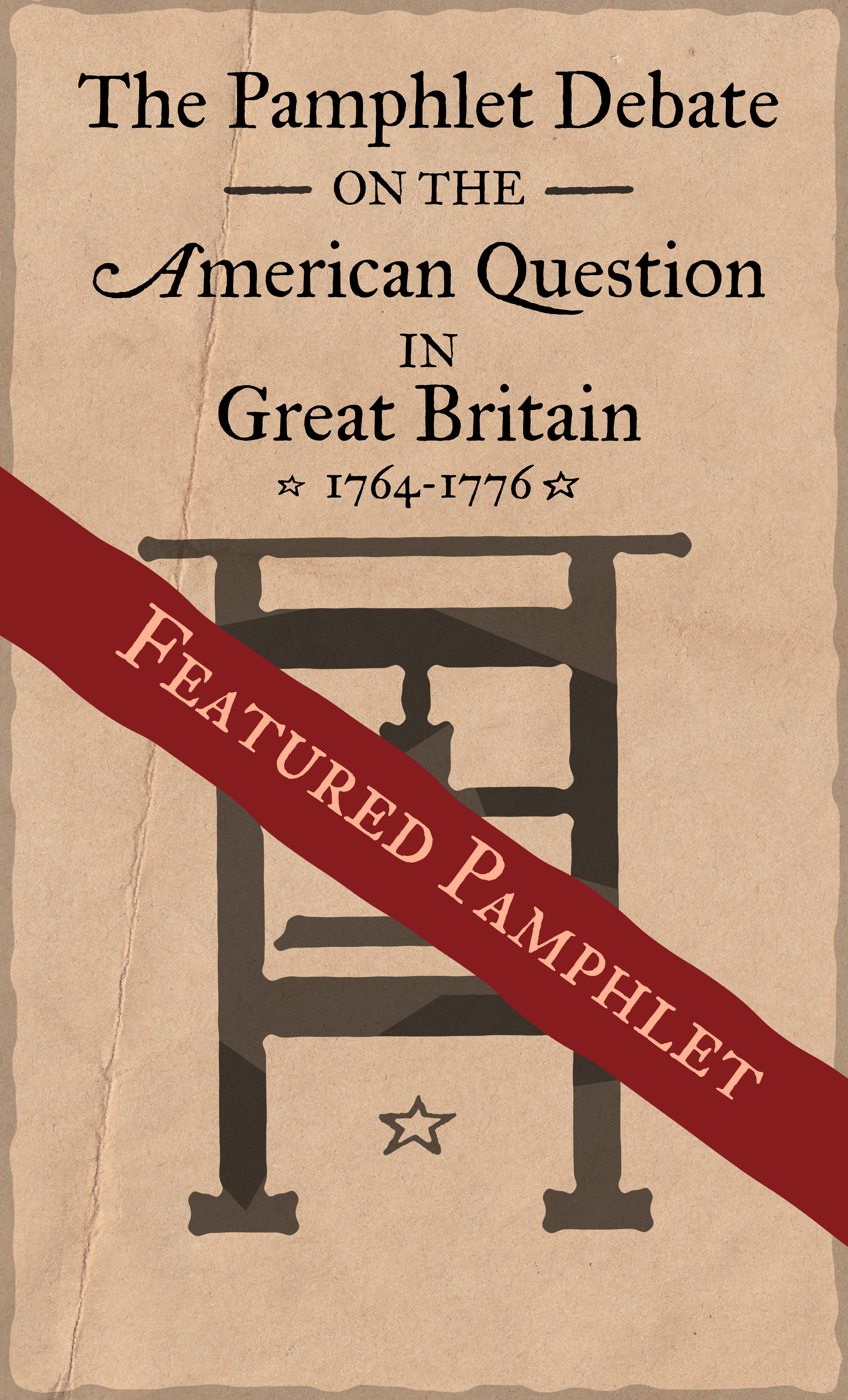
Sequel to Common Sense: Or, the American Controversy considered in two points of view hitherto unnoticed. First, that Parliaments cannot be supreme in all cases whatsoever, without being infallible also. Second, that Colonies, when they find themselves...
- Theophilus Philadelphus (author)
- Jack P. Greene (collection editor)
This essay denies any claim to unlimited supremacy. Such a view asserts an infallibility that belongs only to God, “not Parliaments.” The writer then extends the point to insist that colonies may go so far as to separate, when they have “come of age.” Thus, “in consequence of an unanimity, nay a majority of voices,” they may “throw off all subjection to the… parent state.” Both Wesley and Johnson are excoriated for dipping their pens “deep in prerogative poison, and aristocratic infection.”
Show more
The text of these 18th century pamphlets has been converted by machine from scanned PDFs of the original microfilm copies. While the text has been machine-proofed, transcription errors may still remain. For example, the 18th-century long S, ſ , may be rendered as “f,” some words may be incorrectly transcribed, and there may be repeated words or phrases.